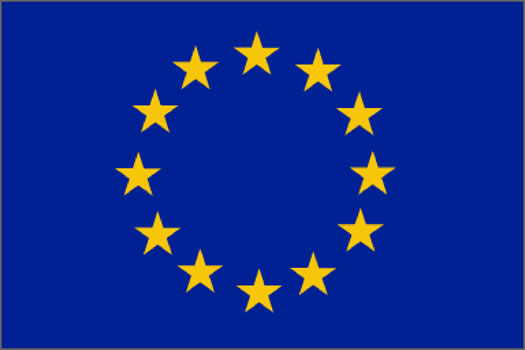The EU’s new top diplomat, Kaja Kallas, and the President of the European Council, Antonio Costa, arrived in Kyiv on Sunday in a symbolic show of support for Ukraine on their first day in office.
“We came to give a clear message that we stand with Ukraine, and we continue to give our full support,” Costa told media outlets, including AFP, accompanying them on the trip.
The European Union’s new leadership is eager to demonstrate its firm backing for Kyiv at a perilous moment for Ukraine, nearly three years into its fight against Russia’s full-scale invasion.
Questions surround the future of US support once Donald Trump assumes office in January, with fears that he could pressure Kyiv into making painful concessions in pursuit of a quick peace deal.
Meanwhile, tensions have escalated as Russian President Vladimir Putin has threatened to strike government buildings in Kyiv with his new Oreshnik missile, following its first use against Ukraine last month.
The Kremlin leader said the move was a response to Kyiv receiving approval to strike targets inside Russia with American and British missiles, and he has warned of retaliatory strikes against the countries supplying the weaponry.
As winter begins, Russia has launched devastating attacks on Ukraine’s power grid, while on the frontline, Kyiv’s forces are losing ground to Moscow’s grinding offensive.
“The situation in Ukraine is very, very grave,” Kallas, a former prime minister of Estonia, said. “But it’s clear that it comes at a very high cost for Russia as well.”
Ceasefire?
The new EU leaders, including European Commission President Ursula von der Leyen, were set to hold talks with Ukraine’s President Volodymyr Zelensky.
On Friday, Zelensky appeared to outline his stance ahead of potential peace talks. He called on NATO to offer guaranteed protections for areas of Ukraine under Kyiv’s control to “stop the hot stage of the war” and suggested a willingness to wait to reclaim other territories seized by Russia.
“If we speak of a ceasefire, we need guarantees that Putin will not come back,” Zelensky told Britain’s Sky News.
Kallas stated, “The strongest security guarantee is NATO membership.”
She added, “We need to discuss this – if Ukraine decides to draw the line somewhere, then how can we secure peace so that Putin doesn’t advance further?”
NATO diplomats say there is little prospect of Ukraine being granted membership soon, as several members remain cautious about being drawn into direct conflict with Russia.
Kallas also suggested that the EU “shouldn’t really rule out anything,” including the possibility of sending European troops to enforce a ceasefire. “We should maintain strategic ambiguity on this,” she said.
‘Transactional Language’
Trump has cast doubt on continuing Washington’s extensive aid for Ukraine and urged EU countries to contribute more.
Europe has collectively spent around $125 billion on supporting Ukraine since Russia’s 2022 invasion, while the United States has provided over $90 billion, according to the Kiel Institute.
Kallas said the EU would adopt a “transactional language” to persuade Trump that backing Kyiv aligns with US interests.
“Aid for Ukraine is not charity,” she said. “A victory for Russia would certainly embolden China, Iran, and North Korea.”
The new EU foreign policy chief reiterated the bloc’s commitment to ensuring Ukraine is in the “strongest” position if and when it decides to negotiate with Moscow.
However, she acknowledged the growing difficulty in achieving consensus among the 27 EU nations to further increase support for Ukraine.
“This war has gone on for quite some time, and it is increasingly difficult to explain the need for continued support to our own people,” she said. “But I see no alternative.”
AFP
